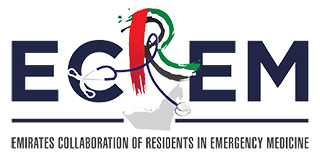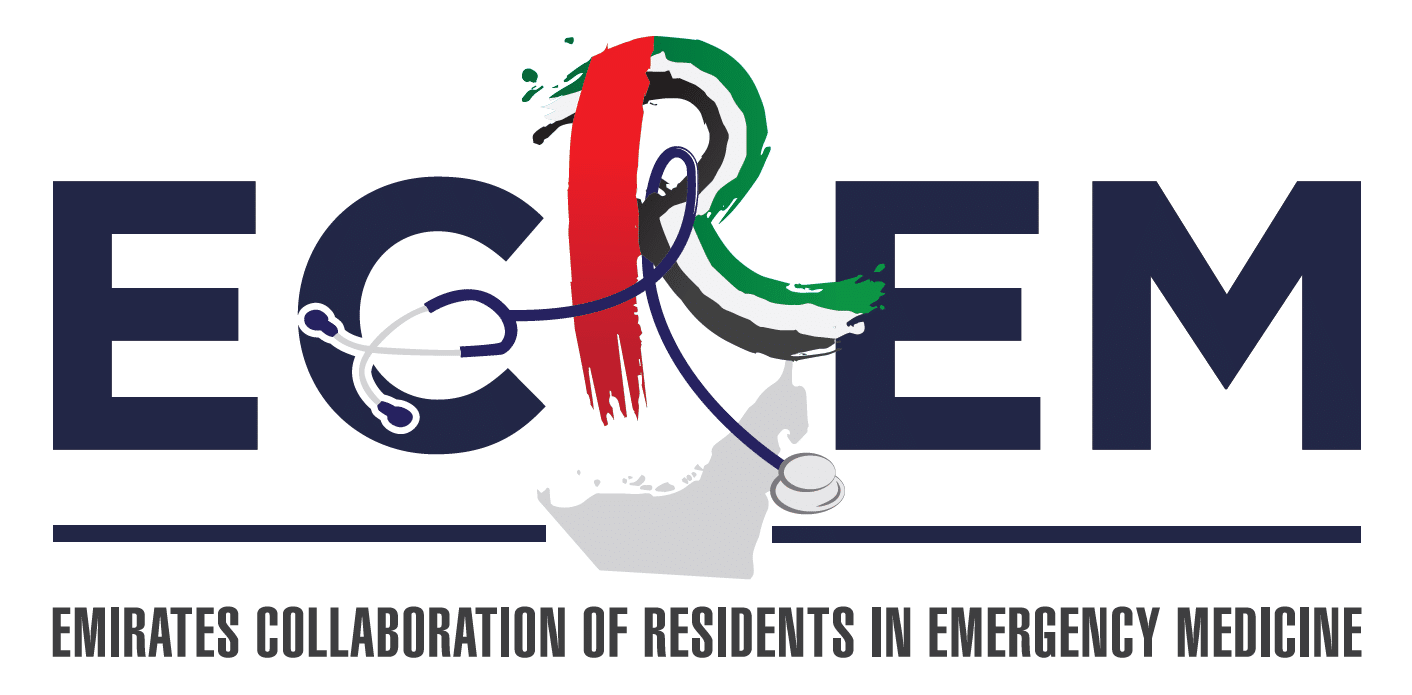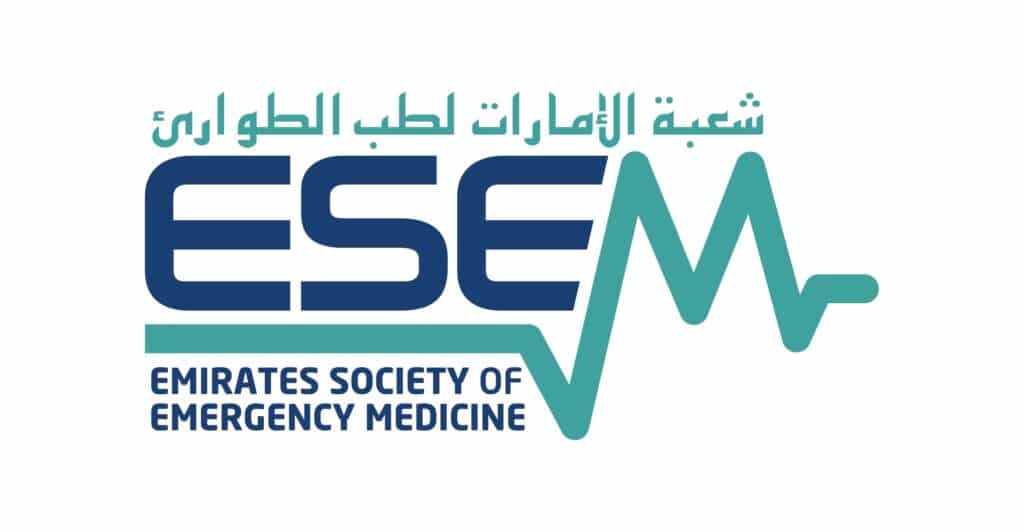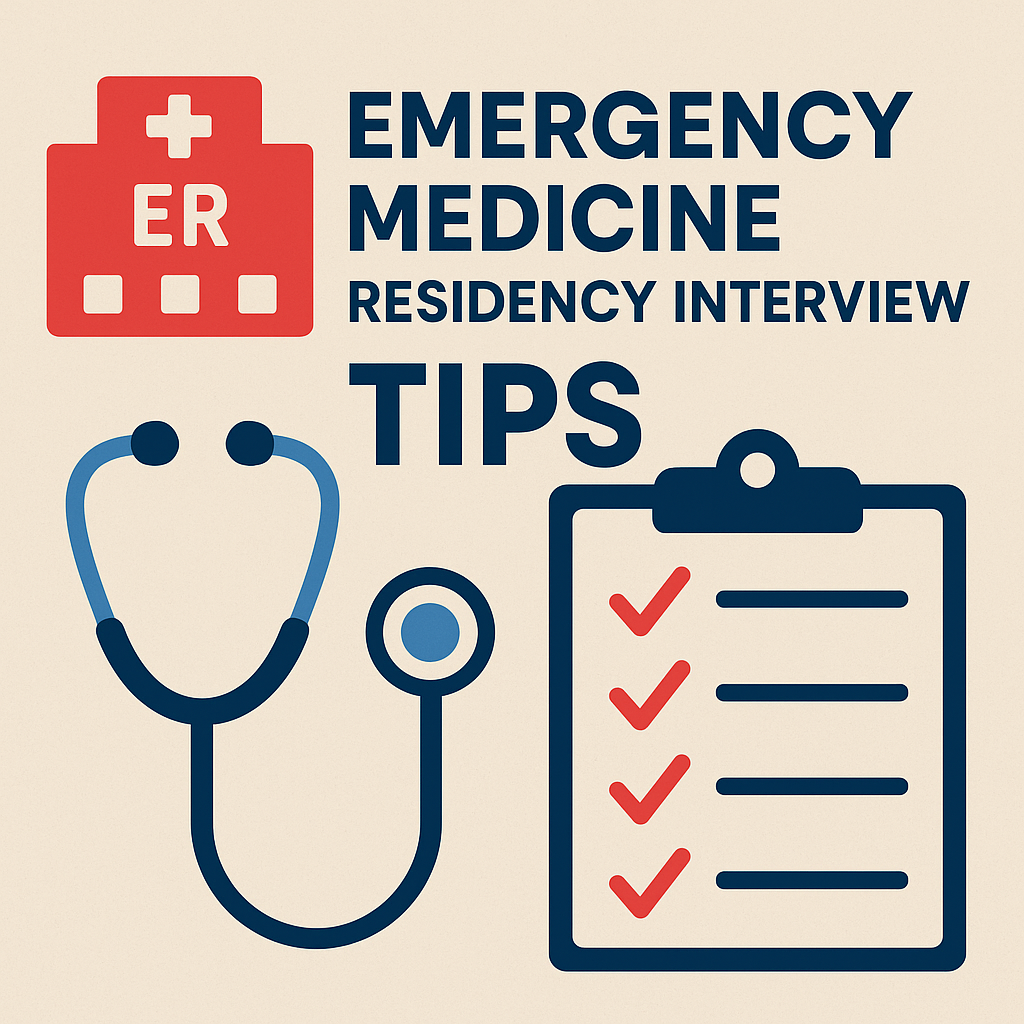It’s interview season, the time when months or years of preparation come down to a handful of conversations that can shape your future. It sounds daunting I know, but try to remember that programs are really just trying to get a feel for who you are, what kind of physician you’re shaping up to be and how you would fit into their program. Your residency interview is your chance to move beyond grades and CVs and show who you are. In this article, we’ll walk you through how to prepare, respond, and stand out in your EM interviews. Let’s get you ready to make a lasting impression by going through common questions!
Tell us about yourself
It’s a really short and deceivingly simple question but there’s actually a million ways you can take it and that’s kind of the beauty of it. This is your chance to really showcase yourself and capture their attention. Try to create a concise, thoughtful narrative that connects who you are with why you’re suited to emergency medicine. A possible approach could be starting with your background, a few key experiences that shaped your clinical interests, and what draws you specifically to EM. You may start by briefly describing your medical school journey, highlight a memorable placement or event in the emergency department, and explain how that sparked your interest in EM. Practicing this response beforehand helps ensure you come across as composed and helps get you out of trouble if the nerves are getting to you on the day.
Why Emergency Medicine?
This is your opportunity to show your enthusiasm for the specialty and your insight into its challenges. Try to reflect on specific experiences, such as an elective or a rotation in medical school, that sparked your interest and reinforced your desire to pursue EM. Emphasise aspects like the variety of presentations, the collaborative team environment, or the satisfaction of making rapid, life-saving interventions. Of course, always back up any specific characteristics you like about the specialty with examples from your own experience.
Know your CV
A fundamental but sometimes underestimated aspect of interview preparation is the importance of knowing your CV in detail. Everything you included in your application may be discussed during the interview. You should be able to speak confidently and reflectively about your experiences, whether it’s about an elective, teaching session, QI project, or an extracurricular activity, and be able to elaborate on what you learned from each. This includes being prepared to discuss outcomes, challenges, and how the experience shaped you and helped you reach where you are today. Also, if you feel like there are any gaps in your CV, don’t look at it as a demerit, instead be prepared to elaborate and explain those gaps in a way that can put you in a positive light, like explaining why you took a gap year and how you spent it.
Why our program?
Before your interview, make sure you understand the unique strengths and structure of the program you’re applying to. Lots of programs will ask, why us? So try to have some more specific answers that show you may have spoken to some of their residents or possibly even done an elective there. Things like knowing how long the program is, what type of boards they have, and specific strengths the program may have. Try to tailor your responses to highlight how your goals align with what the program offers.
What are your strengths and weaknesses?
When discussing your strengths and weaknesses, honesty and insight are key. Whatever strength you may choose to talk about, don’t forget to reinforce it with a story from your clinicals or life in general. Mentioning “staying calm under pressure” is a common answer here but make sure you have a good story to support that. For weaknesses, don’t be afraid to be honest here, what’s more important about the weakness question is how you are planning to address this weakness. Finding a candidate who is self-aware and keen to improve is the primary goal of this question. As usual, try to demonstrate the steps you’ve taken to improve with real life examples.
What traits make you a good fit for Emergency medicine? Why should we choose you?
This is your opportunity to summarise your suitability for the specialty and to highlight the qualities that align with the demands of emergency medicine. Try to provide evidence of how your experiences, both clinical and non-clinical, have helped you develop these traits. Emphasising your capacity to work effectively within multidisciplinary teams, remain calm under pressure, and learn from feedback will help reinforce your preparedness for a career in EM. Ultimately, this question is not just about selling yourself, but about demonstrating a realistic understanding of what emergency medicine entails and a genuine commitment to meeting its challenges.
For the “Why you?” question, it’s may feel scary at first, but here’s your chance to re-emphasize your most compatible traits with the specialty and to also add something unique to you. It might be nice to bring up some characteristics or projects that could add to the program, for example, mentioning you have an interest in teaching and backing it up with how you’ve done teaching with students in the past and how you aim to go into education at some point in the future. Another way could be mentioning how you’re into quality improvement or research or speaking at conferences can be helpful things to highlight, the sky is the limit. Ending this question with ways you want to grow with the program can help show them you have future goals and ambition, and that residency is your stepping stone towards those dreams.
What are some cons of the specialty?
Acknowledge the challenges but explain why you’re committed. One of the most frequently cited difficulties is the intensity of the working environment, which can involve managing multiple high-acuity patients simultaneously, often with incomplete information. The shift-based nature of the job, particularly the requirement for frequent night shifts, weekends, and holidays, can impact work-life balance and contribute to fatigue. Emotional strain is another consideration, as clinicians regularly encounter distressing situations, critically ill patients, and the unpredictability of undifferentiated presentations. These factors can contribute to burnout if not recognised and addressed through adequate support, staffing, and reflective practice. Acknowledging the cons with how you aim to address them is the main point here and may be a nice bridge to your answer in the question below.
How do you manage stress?
Now is a good time to talk about your hobbies. Describe how you maintain your well-being through exercise, hobbies, social support, or debriefing with colleagues! Also, some people mention something small they do daily to maintains their wellness whether it’s your religion, daily prayers and duaa or meditation (something sustainable, you maintain even on the busiest of days).
Where do you see yourself in five years?
It’s a loaded question with lots of ways you can go about answering it. Try to reflect on what type of physician you want to be and if you’re interested in any fellowships, management or going into teaching after. if you want to talk about the fellowship route, possible ones to mention include, paediatric emergency medicine, pre-hospital care, simulation training, or medical education. Ultimately, your answer should convey a clear sense of direction, enthusiasm for lifelong learning, and a desire to grow both as a clinician and as a member of the emergency care community.
Prepare for Clinical Scenarios
You’ll likely be presented with one or two clinical cases. Think out loud, prioritize, and try to be systematic with your ABCDEs. Try to review the approach and management to common emergencies, don’t worry they won’t test you on any zebras, common is common.
Interview Day Tips and Final Thoughts
Whether your interview is in person or online, preparation on the day matters. Dress professionally and arrive (or log in) early. For virtual interviews, check your technology beforehand to avoid disruptions. Ensure you’re in a quiet, well-lit environment.
During the interview, speak clearly, stay calm, and take a moment to think before responding if needed. It’s perfectly acceptable to ask for clarification if a question is unclear. And remember even if one of the questions doesn’t go as you hoped it would, take a deep breath, and move onto the next question, don’t let the weight of the old question put you down. Remember that we are always more critical on ourselves than we are of others, and that, regardless of how one question went you still have the rest of the interview to recover. Remember you’re a great candidate and the program just wants to get to know you, show them the amazing personality you have and I promise you’ll have the best chance of success. I believe in you, all the best!
Dr. Shaikha Alahjeri
PGY1, Sheikh Shakhbout Medical City
I got into emergency medicine after realizing that they’re truly one of the few specialties that would be able to handle the dreaded “Is there any doctor on the plane?!” scenario with grace. When I’m not on shift, you can find me baking or cooking, binge-watching one of my comfort shows…again (occasionally yelling at the screen), or getting lost in an audiobook on a car ride home. I think one of the biggest blessings about this specialty is the range of impact you can make on peoples lives daily, whether small like just giving symptomatic treatment for the common cold or large like being with someone in their final moments, no day is the same and I pray that Allah helps me become the best physician I can be to handle this responsibility.




